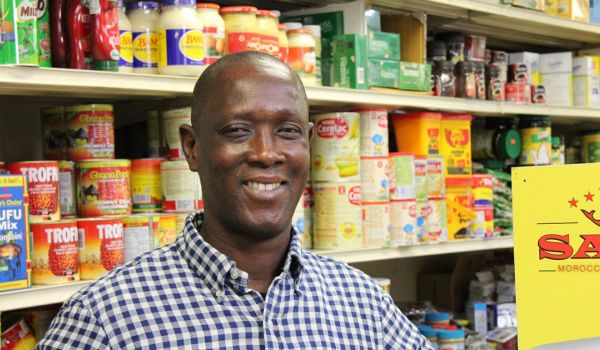Launching a small business takes capital, and many entrepreneurs who find themselves not eligible for funding from traditional banks turn to CDFIs for financial support. But, CDFIs can also have limited resources and operate under constraints. For instance, they may fund loans but not have the capacity to invest in their own marketing, technology or staff retention.
Scale Link is working to change that.
“Traditional CDFI loan funds have a target market, such as entrepreneurs of color, women entrepreneurs or underserved census tracts, and they originate loans within that target market,” explains Brett Simmons, Scale Link’s managing director and principal. “Our target market is other CDFIs.”
Launched in 2020, Scale Link created and manages a secondary market, which bundles CDFIs’ microloans to sell to banks. Simmons says the banks are typically seeking ways to supplement their Community Reinvestment Act (CRA) lending test to serve low- and moderate-income borrowers and support CDFIs’ work.
The goal is to help free up CDFIs’ assets, which enables them to make even more loans to support more entrepreneurs in their communities, as well as invest in raising awareness and building their own infrastructure. Scale Link also donates 75% of the loan sales back to CDFIs.
“At the end of the day, the CDFIs get capital to lend, and they get these additional donations from us that are totally unrestricted that they can use how they want to build out their mission and impact,” Simmons says.
Scale Link serves as an intermediary, he adds. “So, the CDFI only ever has to work with us, and the banks only ever have to work with us. We stay in the middle and make sure that everyone has a good experience and gets what they need out of the transactions.”
Since its founding, the fund has purchased more than 2,800 loans, freeing up $43 million in capital available to invest in small businesses. It has sold $27 million to bank partners and donated $4.4 million in profits back to CDFI customers.
Most of the loans Scale Link purchases support entrepreneurs of color. Many are microloans of around $50,000 or less, which Simmons says is the loan size typically sought out by women- and BIPOC-owned small businesses.
By strengthening and supporting CDFIs, Simmons says they hopefully have the capacity to scale up. Simmons says each year, CDFIs are tasked with raising capital and bringing on new assets to lend to more entrepreneurs.
“What Scale Link has tried to do is take an asset that those CDFIs have, which is this loan portfolio, and allow them to get cash for it right away so they can keep lending and then take that asset and make it worth more,” Simmons says.
Even though Scale Link buys the loan portfolio, the individual CDFI continues to service the loans and maintain relationships with the borrowers, he adds, “so with the client and CDFI, nothing changes in that regard.”
Approving new CDFIs is typically about a two-month process. Simmons says it starts with a phone conversation to go over how the process works, an analysis of a CDFI’s financials and credit memos, and a review by Scale Link’s board of directors to ensure the CDFI has a solid mission to support underserved entrepreneurs and is making an impact.
Scale Link plans to scale up its model and add more CDFIs, with a goal of buying $100 million in loans each year. “We’re at a point where we’ve shown that the model can work,” Simmons says. “And it’s important to find the CDFIs that can help us grow that out.”
Ultimately, the group strives to help other CDFIs do what they do best: provide capital to small businesses and entrepreneurs.
“Our goal is to provide tools for CDFIs to be able to manage the financial side and expand their impact,” Simmons says. “We don’t tell them how to lend or what loan agreements to use. We do the work to make this function on the secondary market.”

This story is part of our series, CDFI Futures, which explores the community development finance industry through the lenses of equity, public policy and inclusive community development. The series is generously supported by Partners for the Common Good. Sign up for PCG’s CapNexus newsletter at capnexus.org.
This article is part of The Bottom Line, a series exploring scalable solutions for problems related to affordability, inclusive economic growth and access to capital. Click here to subscribe to our Bottom Line newsletter.
Erica Sweeney is a freelance journalist based in Little Rock, AR. She covers health, wellness, business and many other topics. Her work has appeared in The New York Times, The Guardian, Good Housekeeping, HuffPost, Parade, Money, Insider and more.


















